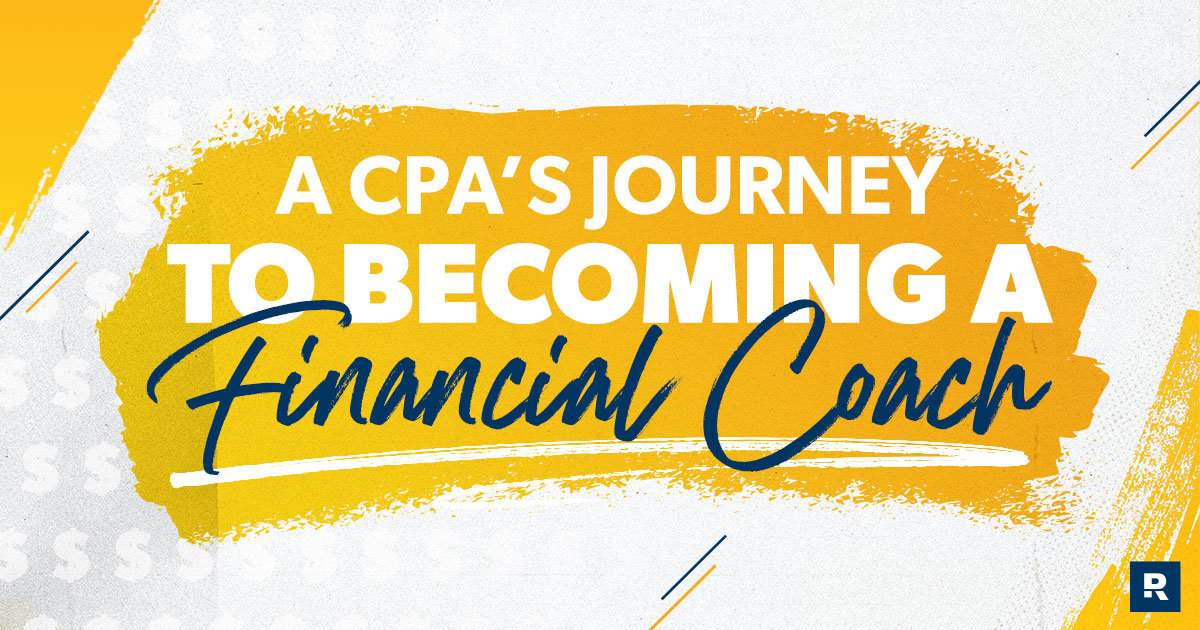How Financial Coach Master Training Made Me a Better CPA
5 Min Read | May 1, 2023

Lynn MacDonald may be a certified public accountant (CPA), but those fancy letters behind her name didn’t stop her from making bad decisions with money. She and her husband were $60,000 in debt when they first stumbled on Dave’s podcast.
A self-proclaimed “queen of credit card rewards and balance transfer schemes,” the Fairfield, CA-based CPA was blind to the fact that her family wasn’t making any real progress toward long-term financial wealth.
While Lynn may have been the one managing all the bills and spreadsheets at home and at work, it was clear she still had a lot to learn about personal finance.
Discovering her ‘aha’ moment
“I think the biggest ‘aha’ moment was really getting the concept that we could actually get out of debt,” recalls Lynn. “All of that [other] nonsense simply had to stop!”
That’s when the MacDonalds got gazelle intense and started working the Baby Steps. They enrolled in a local Financial Peace University (FPU) class and started going to the closest live events they could find.
You probably thought running a business sounded fun—until you realized it would actually run you. Discover the EntreLeadership System—the small-business road map that takes the guesswork out of growth.
Nearly a decade later, the couple is still following Dave’s principles. Not only are they debt-free, but Lynn has gone on to complete Financial Coach Master Training (FCMT). Along with being a CPA, she now provides financial coaching to people who are ready to live like no one else so later they can live and give like no one else.
Why did you become a financial coach?
“You can have a finance degree. You can be a CPA and never have any of this formal training on personal finance or how to manage your household finances,” says Lynn. “It’s really terrible.”
Lynn was as shocked as anyone when the reality of her family’s debt finally set in. She was supposed to be the one with the formal education and training.
“If I myself as a CPA didn’t have this [personal finance] information in my wheelhouse, nobody else does.”
After the MacDonalds started the Baby Steps and paid off their debt in two years, Lynn was more convinced than ever that personal finance wasn’t rocket science. But people needed help knowing what to do next.
That’s why Lynn decided to enroll in FCMT. She was sure Dave’s principles and behavioral approach to money, along with her experience as a CPA, would be a powerful combination to help her better serve others.
How did financial coaching affect your work as a CPA?
“I can help run your business and do a budget for you, but your personal life might be falling to pieces at the same time,” says Lynn. “You’re one package. You’re one person, and you really need to see the whole picture.”
Both as a CPA and a coach, Lynn works primarily with small business owners and entrepreneurs—clients who frequently treat their business and personal lives as if they aren’t connected. Coaching has allowed her to come at her work from different angles.
With her CPA background, Lynn is able to interpret business financial statements and then use her coaching skills to weave those insights into a client’s larger personal goals and plans. FCMT has also given Lynn the confidence to address issues head-on with her clients.
“When people try to put their business in a silo and keep it separate from their personal life, I pull them back into reality and say, ‘There is no business debt. It’s personal debt,’” she says. “Once you say those words, people will process it and say, ‘You know, you’re right. I am responsible for this debt.’”
In an industry that focuses on facts and figures, financial coaching lets Lynn connect with clients beyond spreadsheet data.
As a trained financial expert, what surprised or impressed you most about Financial Coach Master Training?
“I was very impressed with the level of detail and real-world, practical application that FCMT entailed,” says Lynn. “There was such a wealth of information. I printed out all of the [course] downloads and keep them in a folder on my desk with my FCMT notes.”
FCMT offered Lynn a more people-centered way to expand her accounting skill set and learn how to teach her clients the same hope-giving principles that changed her own life.
“Coaching has added a whole new aspect to my practice,” she says. “It’s reenergized me in terms of being able to offer something that’s truly serving the community, that’s truly making a difference in people’s lives.”
Become a financial coach and help others win with money
With 78% of Americans living paycheck to paycheck, there is no shortage of people in financial trouble.1 Like Lynn, if you’re a CPA, you’re in a unique position. You can combine your accounting knowledge with the life-changing skills taught in FCMT to make a truly lasting impact on someone’s life.
But you don’t need to be a CPA to become a financial coach. In fact, most coaches don’t have any formal finance background or training. Ramsey Solutions Master Financial Coaches are teachers, attorneys, social workers, retirees, stay-at-home parents and more. What they all have in common is a desire to give people hope and help others win with money!
For Lynn, financial coaching is a way to show others how they can find the same financial peace she enjoys today.
“Sometimes we all get stuck in a rut, and a little bit of outside motivation or encouragement is always helpful. For me, that started with listening to Dave Ramsey,” she says. “Now I’m able to help others. I can tell them I’ve been through FPU, that I had debt and now I’m out of debt, and I’m in Baby Steps 4, 5 and 6. It helps them see that this is something they can do.”
Interested in Financial Coach Master Training?


